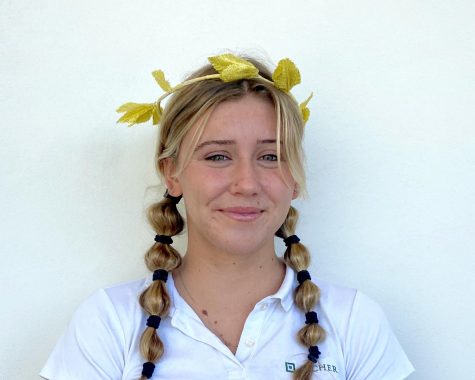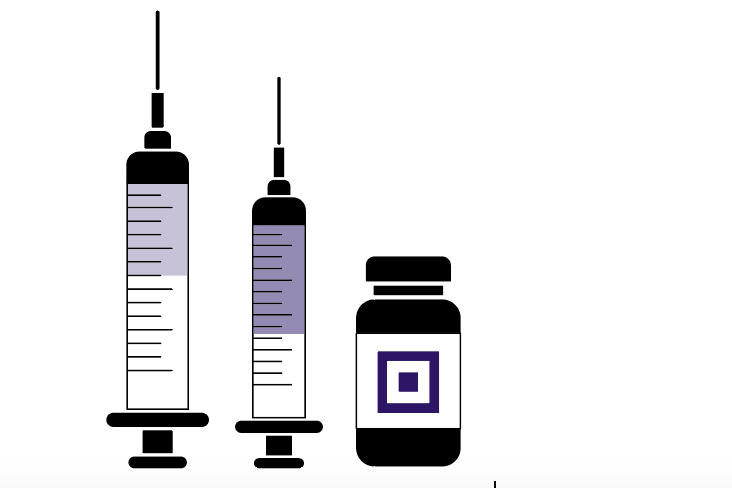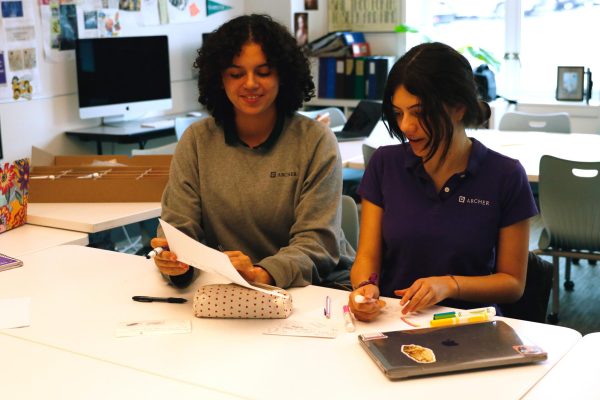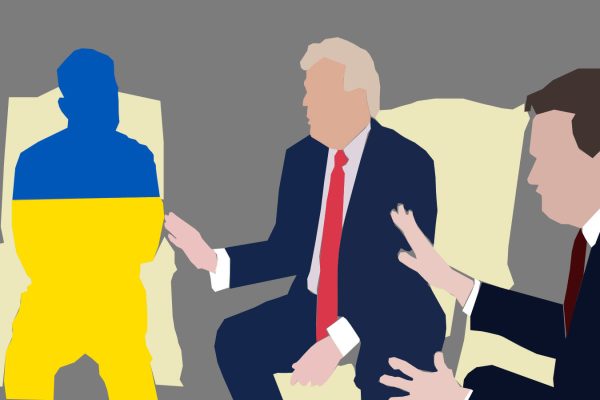‘Important’ and ‘safe’: Students share thoughts on vaccines
In an anonymous survey conducted by the Oracle, students at Archer shared their opinions on vaccines; 74.3% of the responses answered that they strongly support vaccines. “I feel that, for the most part…the Archer community is generally believes in vaccines,” Ava Rothenberg ’22 said. Graphic Illustration by Amanda Greene
As of May 31, 981 cases of the measles have been reported in the U.S. — the highest number reported since 1992. Both high school and college campuses across Los Angeles have been affected by the measles outbreak as over 300 students were quarantined at UCLA. A measles outbreak has now officially been declared in Los Angeles County.
A commonality between measles and whooping cough lies not in the symptoms, but in the fact that they can be prevented by vaccines. However, refusal to vaccinate oneself and one’s children has increased in recent years, in part due to the prevalence of misinformation on social media.
The anti-vaccination movement has its origins in a false study published by then-doctor Andrew Wakefield that claimed there were signs of autism days after children were given the MMR vaccine. Six months after publication of the study, Wakefield’s medical license was revoked by the General Medical Council of the U.K., which said he acted “dishonestly and irresponsibly.” However, anti-vaccination blogs still attempt to use his findings as evidence. Many studies have been conducted since this one, all of which disprove it and show no correlation between autism and vaccines.
Across the United States, all 50 states allow medical exemptions for vaccines, 47 states allow religious exemptions and 20 states allow a philosophical exemption. After a measles outbreak at Disneyland, California changed its policy to no longer allow religious or philosophical exemptions at schools. Archer has chosen to adopt that California policy.
“You have to be vaccinated to attend the Archer School for Girls, and that’s our policy,” Head of School Elizabeth English said. “That’s where we are right now, and I feel strongly that vaccinating one’s children is an important step in keeping them and the greater population healthy.”
Dr. Katherine Marzan, a pediatric rheumatologist, shared that patients who have immune deficiencies or are on immunosuppressants, such as cancer patients, rely on their families and those around them to be vaccinated because they are unable to.
“I think that there’s a good chance that because a lot more people and a lot more children aren’t getting immunized, that these diseases are coming back and we see epidemics of things like measles,” Marzan said.
Some websites and articles argue that vaccines should not be mandatory and that people should try and detox themselves or just use essential oils instead of vaccines. This information has been proven false by a multitude of studies and research.
Junior Sivan Ellman shared that she has a family friend who lives in New York in the suburbs and the children are not vaccinated. The family friend planned on having a birthday party for their children but had to move to a different location since a mandate ordered that non-vaccinated people were not allowed in public in certain areas due to the measles outbreak.
“I get shots because I don’t want to get sick, and my family believes in vaccinations and we believe in the science behind it,” Ellman said. “It was strange because I’ve never seen someone argue about science before, and I think we see that a lot in today’s culture with climate change or vaccinations or things that seem absolute in my mind but are not absolute in other people’s minds.”
Marzan said that with any type of medication or even food or drink there comes a risk of disease, so there are risks when getting a vaccine, but that the capacity to save lives “far outweighs any potential side effects.”
“The news and the media…portray issues as a 50-50 debate. So they’ll bring a licensed medical practitioner or scientist on for half of the air time and then some random mom who runs an all-natural mommy blog for the other half of the air time. [The media is] making it seem like an equal debate when it’s really not,” freshman Ava Rothenberg said.
According to CNN, a measles outbreak in ultra-orthodox Jewish neighborhoods in New York started in October. Health officials discovered an unvaccinated child became infected with measles while visiting Israel and brought it to New York. Five New York City mothers have filed a lawsuit against the city for making the MMR vaccine mandated for anyone who may have been exposed to measles in certain zip codes in Williamsburg, Brooklyn.
“I think the outbreaks are really scary; these are pretty awful diseases and infections and viruses to get. So it is scary to know that this is kind of going around again, especially when we pretty much haven’t had measles and all of a sudden, measles is existing in our area with people our age,” Hoffman said.
“I think [social media] has changed the vaccines debate immensely because once you have the internet, there is, of course, fake things and because there are fake things on the internet that becomes a valid argument as well,” Hoffman said. “The other thing the internet provides is a lot more community so from what I’ve seen from a lot of anti-vaxxers online is that there’s a lot of confirmation bias.”
Patty Lancaster, Archer’s guidance counselor, said that outbreaks of diseases like whooping cough and measles would impact attendance and, subsequently, education in schools.
“Parents probably don’t want to send their kids to school,” Lancaster said. “You can imagine it spreading around, and then you have fifty kids or a hundred kids out for two weeks.”
Even if students have been vaccinated, they may still be at risk. Over fifty students were diagnosed with whooping cough at Harvard Westlake despite high vaccination rates among students. Student Therese Enriquez ’22, who attends the school, said that students were feeling “apprehensive” about the multiple cases of whooping cough and that they weren’t allowed back at school without being tested.
“The school got really protective of the students’ health, and whenever a kid got kind of sick or they had flu-like symptoms they sent them home. The whole time, I just didn’t want to get whooping cough,” Enriquez said.
According to LA Times, “Under California law, children must receive all of their doses of whooping cough vaccine to be allowed to attend school, unless they have a medical reason not to be vaccinated.” By the age of six, most kids have received five doses of the diphtheria-tetanus-acellular-pertussis vaccine, known as DTaP. Children must then receive a booster shot before seventh grade.
“Locally, I think it definitely affects attendance at school, the people at Archer, it affects how we as an Archer community deal with health issues,” Ellman said.
Scientists use five main types of vaccines commonly in the U.S. when creating these vaccines. Doctors consider how the viruses they are trying to prevent work and how the immune system responds to them. What scientists have been noticing in recent years is that pertussis (whooping cough) vaccine, which was changed in 1977, has produced a shorter immunity.
“Certainly, some of the other infections will become more prominent,” Marzan said, “if more and more people don’t get vaccinated.”

Thea Leimone joined The Oracle in 2018 and became the Features Editor in 2021. She loves swimming and was on Archer's varsity swim team for three years....








